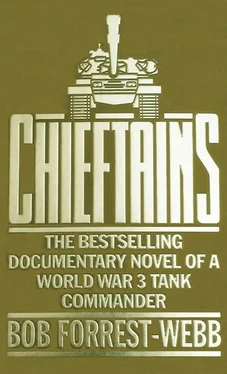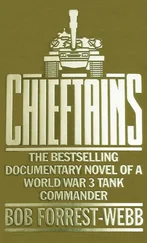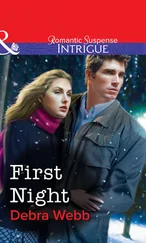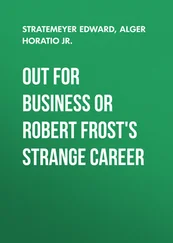He had been eavesdropping on the different radio wavelengths, hoping to obtain some reasonable idea of what was happening along the front. Many of the conversations meant nothing, but he could follow the battles taking place somewhere in the mist and low cloud; seven kilometers ahead. The sounds were there when he opened the hatch, the noises of war dampened by the low cloud, but closer, woolly. The rain wouldn’t slow them much… bloody Scotch mist! Still, with luck, it might cut down the air activity.
‘Charlie Bravo Nine this is Zulu, over.’
‘Charlie Bravo Nine, over.’
‘Everything okay?’
‘Yes, sir.’ What was the new captain’s name? DeYong! Probably Dutch; he had an accent that was difficult to identify.
Davis had sited the Chieftain carefully during the night; optimistically hoping for heavy rain. He could remember a time a few years ago on exercise when a troop of the regiment, sent to defend positions near a river, had remained stationary for almost. twenty hours in a downpour. When the time came to move, they couldn’t. Every one had sunk in the soft earth and had to be towed out by recovery vehicles with kinetic ropes. You didn’t make errors like that in this situation; not if you wanted to live.
Was the rain getting heavier? Rain. It would turn the broken ground, churned by the shell and rocket fire ahead of the advancing Russian armour, into a swamp. It would restrict air activity, and enable the NATO reinforcements more time to be brought up to the front. Every road in the abandoned territory which might have been useful to the Russians had been destroyed, but many behind the NATO lines were still in reasonable condition. Rain favoured the defenders.
Visibility? It seemed less. A thin line of poplars he had been able to see clearly only minutes ago, was hidden. Was it increasing mist, or was the drifting smog of the battlefield already closer?
He saw four simultaneous explosions, the flames brilliant white, the smoke and debris hurtling upwards before merging into the low cloud and the grey background a thousand meters ahead. Armour was moving close to a narrow roadway, skirting a plantation of young larches; NATO armour pulling back. He recognized a squadron of West German Leopards with their distinctive wedge-shaped hulls and low profile, black crosses on the sides of their turrets; tanks of the Heer covering the movement of several of their Marder personnel carriers. The sound of NATO artillery was increasing, the shells shrieking overhead, deep banshee howls of the rocketry, explosions now felt and heard, but mostly unseen.
DeYong’s voice was guttural with anticipation on the squadron net: ‘All stations standby, fire as targets show, out.’
‘Wilco. Out.’
Nothing visible in the mist. The air was shaking, concussions thumped against the hull like waves battering a ship in a storm.
‘I’m blind down here,’ DeeJay complained loudly.
Inkester was making co-ax traverses of the gun, scanning the open ground through his sights; Spink’s hand already rested on the next live shell in the racks.
Were there gunships above the cloud? Davis thought he caught a glimpse of a line of dark shapes moving eastwards. Lynx? He was guessing. If they were NATO helicopters it was dangerous work for them, operating at low level in almost zero visibility. They would be picking their targets by the infra-red emissions from the engines of the Soviet ground vehicles. To Davis it meant that all NATO armour was already safely back out of the way.
‘Gas, gas, gas… November, gas, gas, gas!’ Unnecessary warning, for the tanks had been closed-down since standby at battle stations. So much for the Geneva Convention, Davis thought.
‘Masks on, lads,’ he ordered.
‘It’s ours… must be our gas…’ Inkester’s voice was surprised. ‘Wind’s drifting the smoke back towards the bloody Ruskies… can’t be their own gas… wind’s the wrong way for them!’
Ours. Retaliatory, they had always promised. Why not? The Russians had been using it for the last couple of days. What kind? Nerve, blood agent, corrosive? It didn’t really matter… they said mustard gas was the nastiest, the most painful, blistering deep into your skin, burning out your lungs… one way or another they all killed. The Geneva Convention ruled you couldn’t destroy a man with gas — what difference was there between death from that, or the smashing, pulping, tearing of a high-powered bullet or white-hot shrapnel in your stomach, the seconds of screaming agony within the hell-fire of napalm? Were the latter more humane, he wondered? Christ, animals chosen to die in a slaughterhouse were given more consideration.
A huge ball of flaming material roared down through the low cloud and exploded three hundred meters ahead of Davis’s Chieftain.
‘Christ!’ Inkester gave a startled exclamation as his vision was obscured by billowing smoke.
‘Aircraft!’ said Davis. Whose aircraft? There was no way of telling. Men and equipment dying together; he could imagine the terror of the last terrible moments, as the plane went out of control too close to the ground for survival… Survival, that was what war was all about. Survive a battle, anticipate the next… no, try not to anticipate… just survive every minute; count only the ones behind you, not those still in front waiting to be survived.
So many of!he dead he had seen in the past days appeared to be smiling, grinning at him; an illusion, ragged lips surging from teeth, flesh shrinking on the bones. Why would they smile? Was there humour for them in death?
‘Why are we waiting…’ Inkester began singing, but with a nervous tremor to his voice: bravado.
‘Zulu this is Alpha, we are engaging.’
‘Roger Alpha.’
Alpha! Alpha Troop somewhere to Davis’s left, beyond his sight. Engaging!
‘Zulu, this is Alpha’ Voices urgent; responses immediate. ‘Soviet BRDM-2s… we see four… recce patrol…’
Davis tried to pick out their guns against the tumult of sound and the deep throb of the Chieftain’s engine. It was impossible.
‘Zulu, this is Alpha… we’ve taken them out…’ The voice jubilant. ‘All four!’
‘Good work, Alpha… any casualties?’
‘No casualties.’
Four taken out. Made them sound like sitting ducks. BRDMs… wheeled recce vehicles. Maybe the Russians were having trouble with the softening ground; Alpha had been well-sited, undetected until it was too late. A trap well-sprung.
‘All stations, this is Zulu, expect contact.’
What was happening to the rain he had prayed for? It was lighter; had stopped. Davis could see the line of poplars again, some now broken, one tilted and resting on its neighbour.
Rocket explosions drew lines of deep craters across the open ground closer to the troop position, the field became an instant forest of black smoke columns, alive, growing, spreading.
‘Charlie prepare for action…’ Davis used the troop net.
The shells were exploding closer, some just behind the Chieftain; heavy stuff plunging deep into the ground before it detonated, each hurling several tons of earth skywards.
‘Charlie Nine, this is Zulu, do you have contact?’
‘No contact yet.’
The sound of the combined NATO and Soviet bombardment was now so great that Davis found it necessary to concentrate to prevent the dislocation of his thoughts. It was a monstrous duel, with the divisional armour at its centre. A shell landed five meters away, making the Chieftain shudder, splattering the hull with day and thin mud. The woods to the left were being systematically demolished by a creeping barrage climbing the steep hillside, turning ancient trees to chaos.
Davis saw blue sky through the smoke as more heavy artillery shells landed nearby, rocking the tank violently.
Читать дальше












